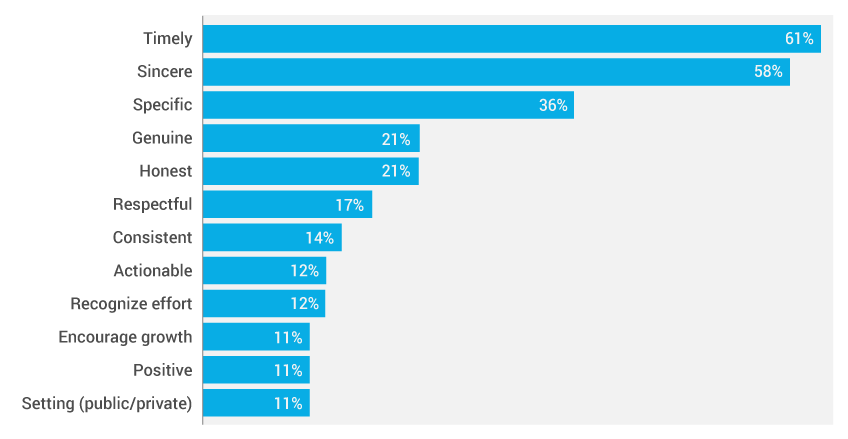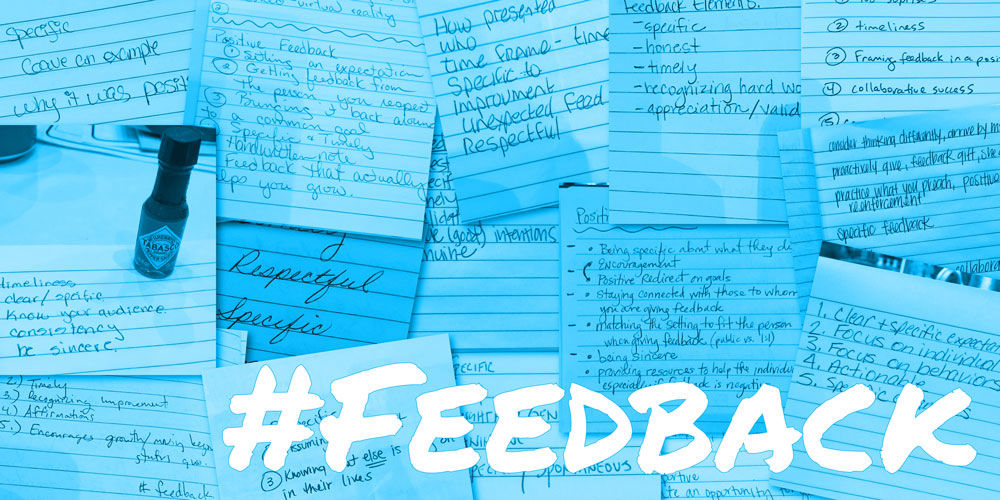Thanks for the Feedback
think a lot about giving and receiving feedback. I lead three outpatient clinics, and I give and receive feedback with a lot of people – medical assistants, providers, patients, families, my peers, and let’s not forget my bosses. I’ve learned in my 14 years as a leader that feedback is the engine of engagement, performance, and ultimately, improvement.
While feedback is necessary, it’s not an easy thing. I fine-tune how I deliver feedback and the below qualities are the path to better feedback. When I have done it right, it has been incredibly rewarding for me and the employee.
At our recent Leader Development Institute (LDI), I asked the attendees to think about a time when they received effective feedback. Then I challenged them to identify five reasons that made it effective, and here is what they collectively said.
Utah Leadership Ranks It’s Top 12 - “What Makes Feedback Useful”

More on the top four
- Be TIMELY in your feedback. Provide feedback immediately after an event (don’t want until an annual review to recognize a strength or coach an issue)
- SINCERE/HONEST. Melissa Horn said it best: “Everyone deserves the chance to receive honest and compassionate feedback about their performance.” Sincerity lets people know you care about them and that the work is important.
- Try being SPECIFIC as possible in your feedback. What exactly did the person do well? Researcher Christine Porath writes “The more specific you are, the better. The more you notice what’s meaningful to a person, the greater your potential impact will be.”
My two-cents
While timely was most frequent response, sincerity came in a close second. I think it is really interesting that sincerity ranked so high, and that four of the top five responses have to do with the “heart” of the person delivering feedback. There is a really great lesson in this for me about where my heart should be when giving feedback. What would my feedback sound like if it was more sincere, more genuine, more honest, and more respectful?
Kirk Hughs
To disagree means failing to agree. Synonyms include to contradict, challenge or debate. Synonyms do not also have to include to argue, quarrel, dispute, bicker or clash. Pediatric intensivist Jared Henricksen shares the best path forward when words become clouded with emotion.
Chief Wellness Officer Amy Locke shares practical strategies for leaders to address the real tension we’re feeling between the desire to take a break and the increasing workload.
As leaders, we want to foster work environments that create safe and reliable care for patients and employees. Sounds easy, but its hard work! Chief Human Resources Officer Sarah Sherer coaches leaders from around the system on thinking through when it’s time to look at a process and when it’s time for coaching an employee.
